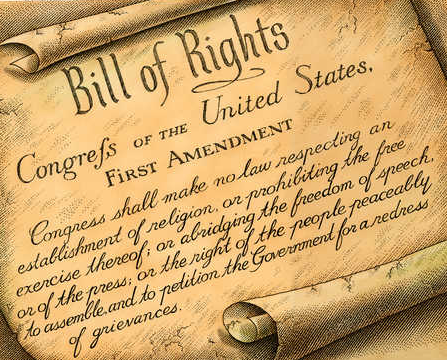When we talk about freedom of speech here in the USA what comes to the mind of the public is the First Amendment. When thinking about what the First Amendment text means or conveys, there could be different interpretations. I was interested in the topic of freedom of speech and freedom of expression as certain societies claim to have achieved greater levels of it.
I wanted to document myself with something enriching and that is why I decided to read, among other texts, an article found in the Stanford Encyclopedia of Philosophy, under the title Freedom of Speech.
The author starts analyzing the boundaries for a debate on freedom of speech and expression based on the theoretical work of John Stuart Mill and other intellectuals, and he starts deconstructing the concepts and assumptions about this topic.
I had the opportunity to deliver a presentation about freedom of speech for our Humphrey colleagues and Barrett students. The debate was rich in opinions, which was very satisfying.
The good part about debating is that one realizes how other people think and their ways of living their lives. Of course, people have their own opinion and that opinion can vary with time. I am happy to bring to the table topics that are debated here in the USA, but sometimes people that debate around these topics only make references to certain areas of knowledge, instead of assessing where the ideas come from and why they make reference to the topic in one way or another.
I was glad to see a tweet from Domenico Nicosia, one of the Barrett students, about the discussion: “The kind of discussions that makes me miss my ethics class. Thanks to @fjaguilarr.” @fjaguilarr is my twitter alias. Thanks to Domenico for recognizing that way the value of the discussion, and thanks to everyone who participated in the session.

